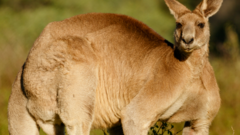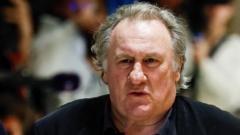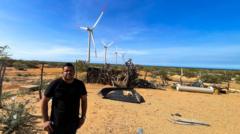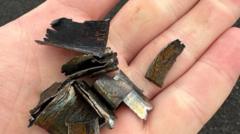Kathleen Folbigg's A$2 million compensation offer, after her wrongful conviction for the deaths of her four babies, is deemed insufficient by legal experts and advocates who believe it fails to reflect her suffering and injustice.
Compensation Offer for Wrongfully Jailed Mother Draws Criticism
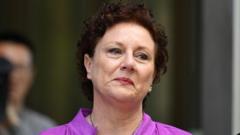
Compensation Offer for Wrongfully Jailed Mother Draws Criticism
Kathleen Folbigg, once labeled "Australia's worst mother," receives an inadequate A$2 million for wrongful imprisonment.
In a case that has sparked significant outrage, Kathleen Folbigg, whose wrongful imprisonment for the death of her four infants became one of Australia’s most infamous legal blunders, has been unexpectedly offered only A$2 million (approximately £975,580 or $1.3 million) in compensation for two decades of incarceration.
Once vilified as “Australia’s worst mother,” Folbigg was convicted in 2003 of killing her children amid claims of smothering them, accused partly due to circumstantial evidence drawn from her personal diaries. The tides turned in 2023 when a judicial review revealed her children's deaths could be attributed to a rare genetic condition, prompting her release from prison after 20 years behind bars.
Folbigg's legal counsel has expressed deep dissatisfaction with the government’s compensation offer, branding it “profoundly unfair” and “ethically indefensible.” Rhanee Rego, her lawyer, stated that the A$2 million payout is a moral insult, especially given the severity of what Folbigg has endured.
New South Wales Attorney General Michael Daley defended the sum, mentioning that the decision followed extensive consideration of Folbigg's compensation application, although he noted that discussions about the decision's details would remain confidential at her request.
Ms. Folbigg’s children—Caleb, Patrick, Sarah, and Laura—died between 1989 and 1999, at ages ranging from mere weeks to a year and a half. Prosecutors relied on conjecture and emotional narratives to undermine her maternal capabilities during her trial, which led to a 40-year sentence that was later reduced on appeal.
Legal experts estimated she could have received upwards of A$10 million, given the historical context of wrongful convictions in Australia. Comparing Folbigg’s case to that of Lindy Chamberlain, who received A$1.7 million for three years of wrongful imprisonment in 1994, Rego highlighted the glaring disparity.
Experts in the fields of forensic criminology and legal affairs have gone so far as to claim that Folbigg’s compensation should be the largest paid in Australian history, with estimates going as high as A$20 million as media outlets report on the public outcry surrounding her unjust treatment and the meager compensation offered.










